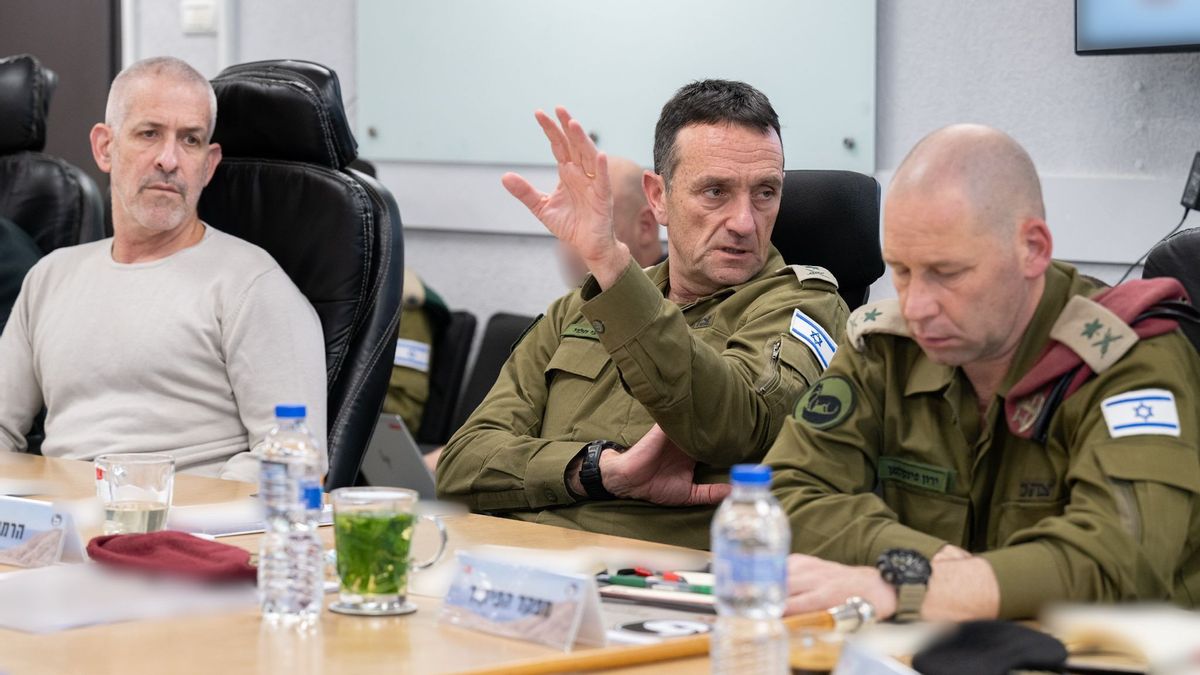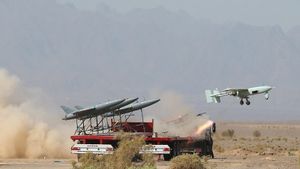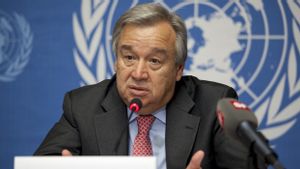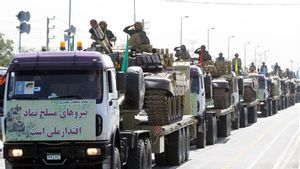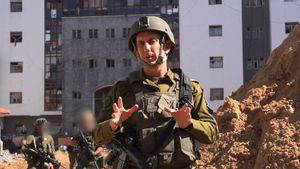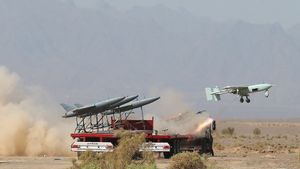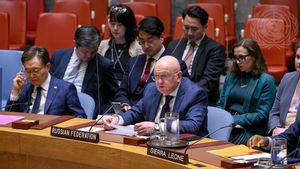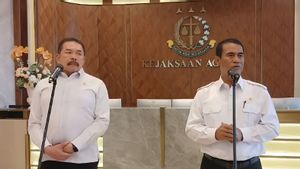JAKARTA - Israel's military chief said on Monday his country would respond to Iran's missile and drone attacks at the weekend, amid calls from allies for restraint to avoid an escalation of conflict in the Middle East.
Prime Minister Benjamin Netanyahu summoned his war cabinet for the second time in less than 24 hours, to consider how to react to Iran's first direct attack on Israel, a government source said.
Israel Defense Forces (IDF) Chief of Staff Lt. Gen. Herzi Halevi said his country would respond but did not provide details.
"The launch of so many missiles, cruise missiles, and drones into Israeli territory will be responded to favorably," he said at the Nevatim Air Base in southern Israel, which suffered some damage in the attack Saturday night, as reported by Reuters, April 16.
The exchange of attacks between Israel and Iran has raised fears of open war between Israel and Iran, as well as concerns that violence rooted in the war in Gaza is spreading in the region.
Alarmed by the dangers, President Joe Biden told PM Netanyahu the United States would not take part in Israel's retaliatory strike against Iran, officials said Sunday.
The United States and UN Secretary-General Antonio Guterres issued calls for Israel to exercise restraint.
White House National Security Spokesman John Kirby on Monday declined to say whether President Biden urged Prime Minister Netanyahu in talks on Saturday night to exercise restraint in response to the attack.
"We don't want to see war with Iran. We don't want to see regional conflict," Kirby said, adding it was up to Israel to decide "if and how they will respond."
Separately, the European Union and a number of countries on the Blue Continent called on Israel to exercise restraint to prevent a wider conflict.
"We are on the edge of a cliff and we have to move away from it," EU foreign policy chief Josep Borrell told Spanish radio station Onda Cero.
"We have to step on the brakes and reverse gear," he said.
Meanwhile, French President Emmanuel Macron, German Chancellor Olaf Scholz and British Foreign Minister David Cameron made similar calls.
Russia on Monday chose to refrain from criticizing its ally Iran publicly over the attack, but expressed concern about the risk of escalation, and called for restraint.
SEE ALSO:
"Further escalation is not in anyone's interests," said Kremlin spokesman Dmitry Peskov.
Seven Iranian Revolutionary Guard Corps (IRGC) officials were killed in an airstrike on the Iranian Consulate in Damascus, Syria, including two senior generals. Israel, which is said to be behind the attack, did not confirm or deny it.
In response, Iran launched airstrikes involving more than 300 drones and missiles last Saturday, causing minor damage in Israel and injuring a 7-year-old girl. Most of Iran's attacks were shot down by Israel's Iron Dome defense system and with help from the US, UK, France, and Jordan's air defense which emphasized that it would shoot down missiles and drones fired by anyone who crossed its airspace.
The English, Chinese, Japanese, Arabic, and French versions are automatically generated by the AI. So there may still be inaccuracies in translating, please always see Indonesian as our main language. (system supported by DigitalSiber.id)
